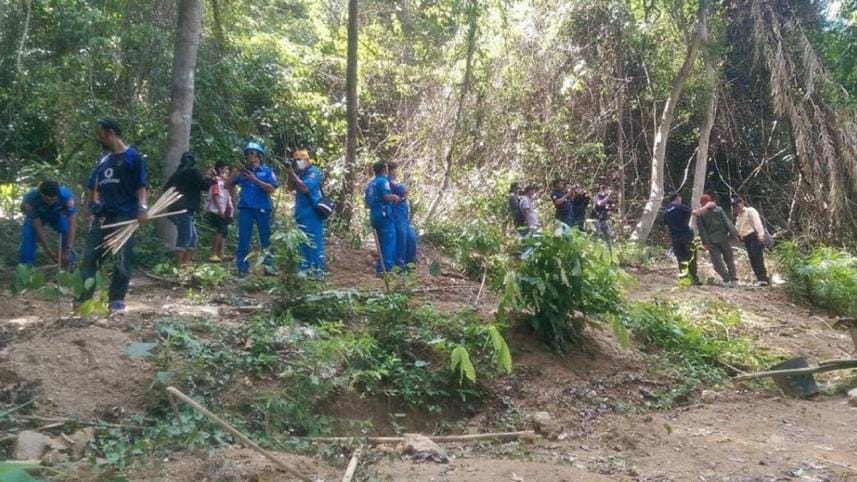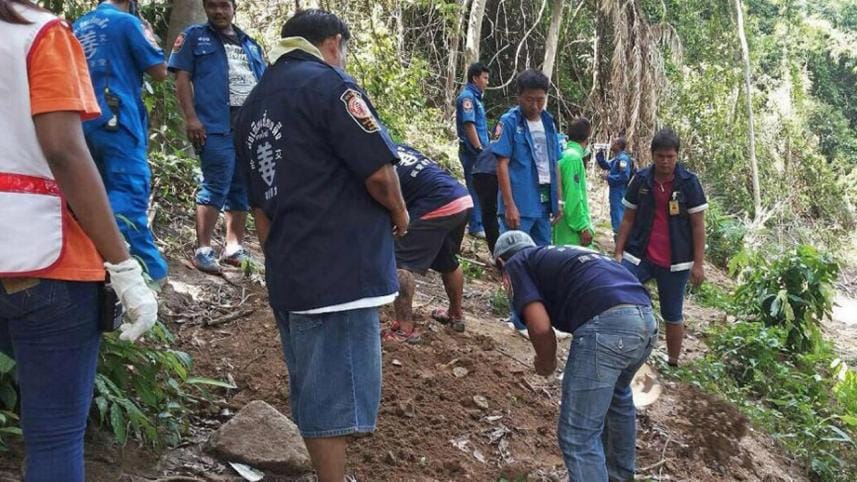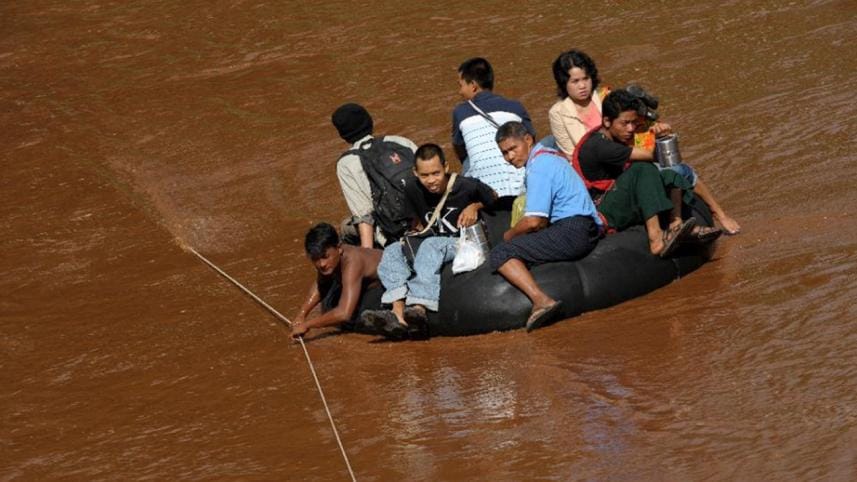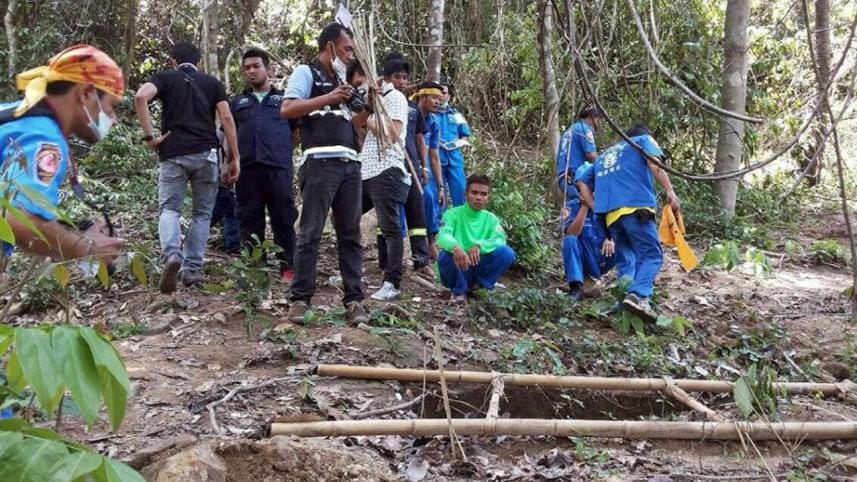Bangladeshi migrants' mass grave in Thailand!

At least 32 shallow graves believed to belong to trafficked migrants were discovered yesterday on a remote and rugged mountain in border district Sadao, in Songkhla.
The bodies were discovered at a so-called "waiting area" for the migrants before they were sneaked through the border into Malaysia,reports Thai newspaper The Nation.
A Bangladeshi migrant was found alive in the mass grave and was being treated at a local hospital and is said to be in a stable condition, reported the news agency.
It is believed that he was left there to die as he was sick and Police want to talk to him to gather more information on the traffickers.
AFP reports, the border area with Malaysia is notorious for its network of secret camps where smuggled migrants are held, usually against their will until relatives pay up hefty ransoms.
[twitter]
Mass 'migrant prison camp' grave found in #Thailand http://t.co/4dWsFE5hGf pic.twitter.com/fcqyEkOhYW
— Gulf News (@gulf_news) May 1, 2015[/twitter]
"There are 32 graves, four bodies have now been exhumed and are on their way... to hospital for an autopsy," Sathit Thamsuwan, a rescue worker who was at the scene soon after the site was found, told AFP, saying it was unclear how they had died.

"The bodies were all decayed," he said, adding a single emaciated man from Bangladesh survived and was being treated at a hospital in nearby Padang Besar.
National police chief General Somyot Poompanmoung described the site as a virtual "prison camp" where migrants were held in makeshift bamboo cells.
"There are 32 places that look like graves and whether there is one body or several bodies in those graves, we will we have to wait and see," he said.
He said the smugglers were believed to have abandoned the sick man when they moved Rohingya migrants across the border into Malaysia two days ago.
Local media said the camp and its lone survivor were stumbled upon by villagers looking for mushrooms.
The hospital confirmed the Bangladeshi man had survived and said he was in a stable condition.
A senior official from Sadao said exhumations had now stopped pending the arrival of forensic teams.
Dangerous crossings
Tens of thousands of migrants from Myanmar, mainly from the Rohingya Muslim minority but also increasingly from Bangladesh, make the dangerous sea crossing to southern Thailand, a well-worn trafficking route often on the way south to Malaysia and beyond.

Thousands of Rohingya -- described by the UN as one of the world's most persecuted minorities -- have fled deadly communal unrest in western Myanmar's Rakhine state since 2012.
Chris Lewa, from the Arakan Project which monitors the smuggling routes, said survivors of the jungle camps often described horrific conditions as they waited for relatives to pay ransoms.
"If police find a camp and start digging you can bet they will find graves," she told AFP.
Last week UN Secretary General Ban Ki-moon described the condition of such camps as "untenable", adding that their existence should "remain a matter of profound concern for the international community".
Thailand has been criticised in the past for pushing boatloads of Rohingya entering Thai waters back out to sea, and for holding migrants in overcrowded facilities.
The ruling junta says it has taken significant steps to combat trafficking since June, when the United States dumped Thailand to the bottom of its list of countries accused of failing to tackle modern-day slavery.
In January, Thai authorities confirmed more than a dozen government officials -- including senior policemen and a navy officer -- were being prosecuted for involvement or complicity in human trafficking.

Lewa said the junta's crackdown had forced many Thai smugglers into hiding, reducing the numbers held in jungle camps in recent months.
But smugglers have simply switched tactics, she said, keeping desperate migrants in rickety boats at sea for endless weeks.
"We fear there may be thousands stuck at sea because they can't disembark. The camps have effectively been transferred from the jungle to international waters," she said.
Two weeks ago she interviewed a 15-year-old boy who had made it to Malaysia.
Rather than hold him in a Thai jungle camp, he was kept for six weeks on a boat, awaiting payment from his relatives.
"During his time at sea he said he saw at least 30 people die. They were thrown overboard," he said.



 For all latest news, follow The Daily Star's Google News channel.
For all latest news, follow The Daily Star's Google News channel.
Comments